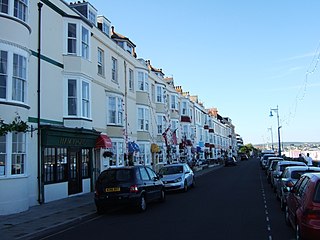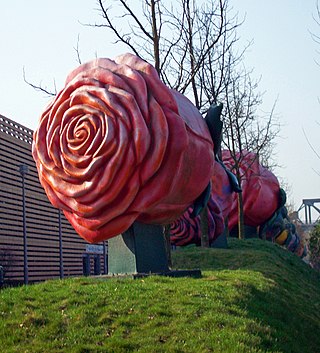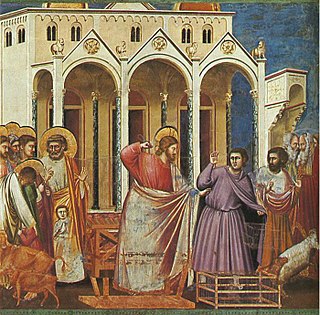Related Research Articles

Adam Smith was a Scottish economist and philosopher who was a pioneer in the thinking of political economy and key figure during the Scottish Enlightenment. Seen by some as "The Father of Economics" or "The Father of Capitalism", he wrote two classic works, The Theory of Moral Sentiments (1759) and An Inquiry into the Nature and Causes of the Wealth of Nations (1776). The latter, often abbreviated as The Wealth of Nations, is considered his magnum opus and the first modern work that treats economics as a comprehensive system and as an academic discipline. Smith refuses to explain the distribution of wealth and power in terms of God's will and instead appeals to natural, political, social, economic, legal, environmental and technological factors and the interactions among them. Among other economic theories, the work introduced Smith's idea of absolute advantage.

A copyright is a type of intellectual property that gives the creator of an original work, or another right holder, the exclusive and legally secured right to copy, distribute, adapt, display, and perform a creative work, usually for a limited time. The creative work may be in a literary, artistic, educational, or musical form. Copyright is intended to protect the original expression of an idea in the form of a creative work, but not the idea itself. A copyright is subject to limitations based on public interest considerations, such as the fair use doctrine in the United States.

Intellectual property (IP) is a category of property that includes intangible creations of the human intellect. There are many types of intellectual property, and some countries recognize more than others. The best-known types are patents, copyrights, trademarks, and trade secrets. The modern concept of intellectual property developed in England in the 17th and 18th centuries. The term "intellectual property" began to be used in the 19th century, though it was not until the late 20th century that intellectual property became commonplace in most of the world's legal systems.

Property is a system of rights that gives people legal control of valuable things, and also refers to the valuable things themselves. Depending on the nature of the property, an owner of property may have the right to consume, alter, share, redefine, rent, mortgage, pawn, sell, exchange, transfer, give away, or destroy it, or to exclude others from doing these things, as well as to perhaps abandon it; whereas regardless of the nature of the property, the owner thereof has the right to properly use it under the granted property rights.

Criticism of copyright, or anti-copyright sentiment, is a dissenting view of the current state of copyright law or copyright as a concept. Critics often discuss philosophical, economical, or social rationales of such laws and the laws' implementations, the benefits of which they claim do not justify the policy's costs to society. They advocate for changing the current system, though different groups have different ideas of what that change should be. Some call for remission of the policies to a previous state—copyright once covered few categories of things and had shorter term limits—or they may seek to expand concepts like fair use that allow permissionless copying. Others seek the abolition of copyright itself.

Thomas Sowell is an American economist, social philosopher, and political commentator. He is a senior fellow at the Hoover Institution. With widely published commentary and books—and as a guest on TV and radio—he became a well-known voice in the American conservative movement as a prominent black conservative. He was a recipient of the National Humanities Medal from President George W. Bush in 2002.
Ownership is the state or fact of legal possession and control over property, which may be any asset, tangible or intangible. Ownership can involve multiple rights, collectively referred to as title, which may be separated and held by different parties.
Libertarians have differing opinions on the validity of intellectual property.
William Jones may refer to:

The history of copyright starts with early privileges and monopolies granted to printers of books. The British Statute of Anne 1710, full title "An Act for the Encouragement of Learning, by vesting the Copies of Printed Books in the Authors or purchasers of such Copies, during the Times therein mentioned", was the first copyright statute. Initially copyright law only applied to the copying of books. Over time other uses such as translations and derivative works were made subject to copyright and copyright now covers a wide range of works, including maps, performances, paintings, photographs, sound recordings, motion pictures and computer programs.

The Copyright Act of 1790 was the first federal copyright act to be instituted in the United States, though most of the states had passed various legislation securing copyrights in the years immediately following the Revolutionary War. The stated object of the act was the "encouragement of learning," and it achieved this by securing authors the "sole right and liberty of printing, reprinting, publishing and vending" the copies of their "maps, charts, and books" for a term of 14 years, with the right to renew for one additional 14-year term should the copyright holder still be alive.
Intangible property, also known as incorporeal property, is something that a person or corporation can have ownership of and can transfer ownership to another person or corporation, but has no physical substance, for example brand identity or knowledge/intellectual property.
Perpetual copyright, also known as indefinite copyright, is copyright that lasts indefinitely. Perpetual copyright arises either when a copyright has no finite term from outset, or when a copyright's original finite term is perpetually extended. The first of these two scenarios is highly uncommon, as the current laws of all countries with copyright statutes set a standard limit on the duration, based either on the date of creation/publication, or on the date of the creator's death. Exceptions have sometimes been made, however, for unpublished works. Usually, special legislation is required, granting a perpetual copyright to a specific work.
DePaul University College of Law is the law school of DePaul University, a private Catholic research university in Chicago, Illinois. It employs more than 125 full- and part-time faculty members and enrolls more than 500 students in its Juris Doctor program. The school is recognized for its health law and intellectual property law programs, its experiential learning opportunities, and for its multiple joint degree programs offered in conjunction with other DePaul University colleges and schools.
William D. Rubinstein is a historian and author. His best-known work, Men of Property: The Very Wealthy in Britain Since the Industrial Revolution, charts the rise of the 'super rich', a class he sees as expanding exponentially.
William A. Jones may refer to:

Freedom of panorama (FOP) is a provision in the copyright laws of various jurisdictions that permits taking photographs and video footage and creating other images of buildings and sometimes sculptures and other art works which are permanently located in a public place, without infringing on any copyright that may otherwise subsist in such works, and the publishing of such images. Panorama freedom statutes or case law limit the right of the copyright owner to take action for breach of copyright against the creators and distributors of such images. It is an exception to the normal rule that the copyright owner has the exclusive right to authorize the creation and distribution of derivative works.

The public domain (PD) consists of all the creative work to which no exclusive intellectual property rights apply. Those rights may have expired, been forfeited, expressly waived, or may be inapplicable. Because no one holds the exclusive rights, anyone can legally use or reference those works without permission.
The Presidential Commission on Good Government (PCGG) is a quasi-judicial government agency of the Philippines whose primary mandate is to recover the ill-gotten wealth accumulated by Ferdinand Marcos, his immediate family, relatives, subordinates and close associates, whether located in the Philippines or abroad. It was created by President Corazon Aquino shortly after she was sworn in as president in the aftermath of the 1986 People Power revolution. In addition to recovering the Marcos wealth, it is also tasked with investigating other cases of graft and corruption; and instituting of corruption prevention measures.

There have been a variety of Christian views on poverty and wealth. At one end of the spectrum is a view which casts wealth and materialism as an evil to be avoided and even combated. At the other end is a view which casts prosperity and well-being as a blessing from God.
References
- ↑ Jones, William A. (2015). MindWealth: Building Personal Wealth from Intellectual Property Rights. AuthorHouse. ISBN 9781504941198 . Retrieved 6 January 2022.
- ↑ "Author William A. Jones explores the UK and global environment in which people can build personal wealth from IP". iprology.com. Retrieved 6 January 2022.
- ↑ "MindWealth: Building Personal Wealth from Intellectual Property Rights". kirkusreviews.com. Retrieved 6 January 2022.
- ↑ Jones, William A. (2015). MindWealth: Building Personal Wealth from Intellectual Property Rights Paperback by William A. Jones (Author). AuthorHouse. ISBN 978-1504941204.
- ↑ "Books by William A. Jones". thriftbooks.com. Retrieved 6 January 2022.